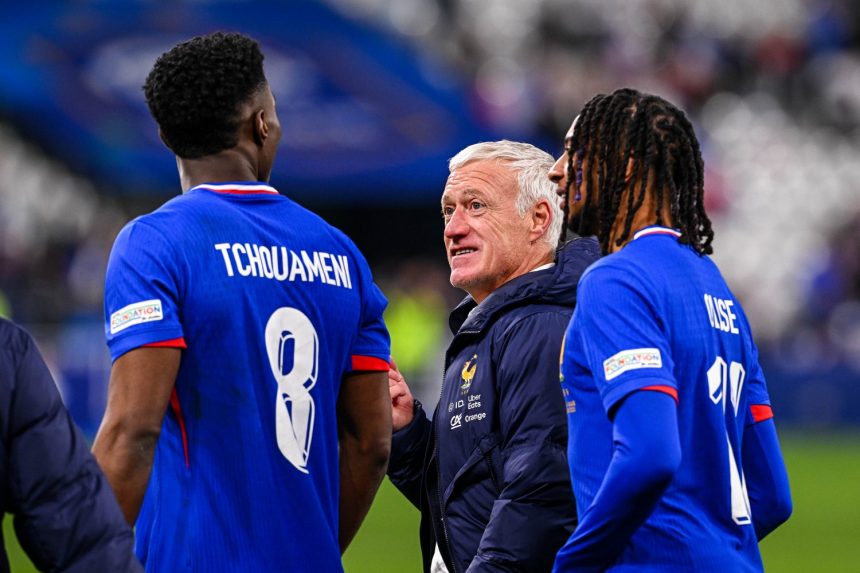The injuries to Désiré Doué (20-year-old midfielder/forward) and Ousmane Dembélé (28-year-old forward) last Friday during the 2-0 victory against Ukraine have sparked criticism. This includes criticism from Paris Saint-Germain, which regretted the lack of communication and caution. There are also angry fans and skeptical media outlets. At a press conference on Monday, ahead of the match against Iceland, Aurélien Tchouaméni (25-year-old Real Madrid midfielder) and national team coach Didier Deschamps addressed the issue. Their comments were reported by RMC Sport.
Tchouaméni: “The coach is understanding; he’s not stupid.”
“We haven’t necessarily discussed it. We were all disappointed that Ousmane and Désiré got injured. If there’s a risk of injury, the coach has always been understanding. At Madrid, there’s always good communication between both parties.”
“I think everyone defends their own interests, but ultimately, the player has to communicate how they feel. If he feels it’s problematic, the coach is understanding; he’s not stupid. Health issues can arise during national team call-ups; that’s part of the game.”
Deschamps: “PSG isn’t our adversary, even if we have differing interests.”
“What happened, happened. I’m especially disappointed for Ousmane and Désiré because we’re losing two players for tomorrow’s match. We handled things very professionally and gradually, as we do with all players, taking into account their feelings.”
“To avoid further questions on this, PSG isn’t our adversary, even if we have differing interests. The protocol is: all players are supposed to report their injuries at Clairefontaine. If that’s not possible, then it’s not possible.”
It’s understandable that Tchouaméni would defend his national team coach. It would have been disastrous for team morale and image for him to criticize him publicly. And there’s probably some truth to what he said; the French coaching staff did maintain good communication with Real Madrid. We can certainly see the idea here of relying on the “players’ feelings.” This makes sense, but it also has its limitations. Players are often driven by their desire to play, and you can’t always predict when an injury might occur.
It’s quite clear that starting Dembélé at halftime of the match against Ukraine wasn’t a wise decision. That doesn’t mean an injury was inevitable, but they could have waited to minimize the risk. The best choices were probably not made. Not to mention the message sent to the other available attacking players who were left on the bench, while there was a risk of injury to the Parisian forward, who had been doubtful to play all week. It seems at least possible to consider making some improvements.
